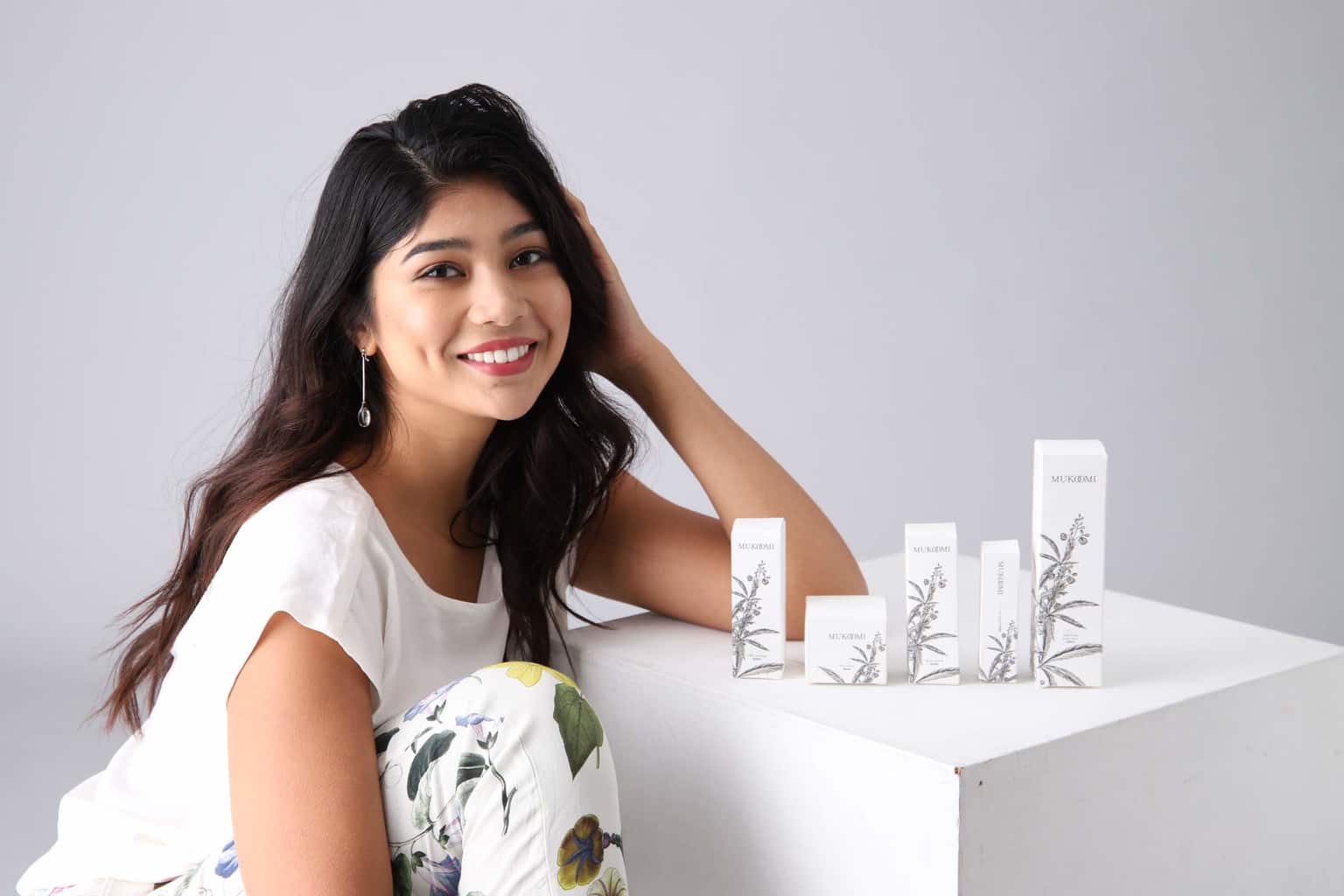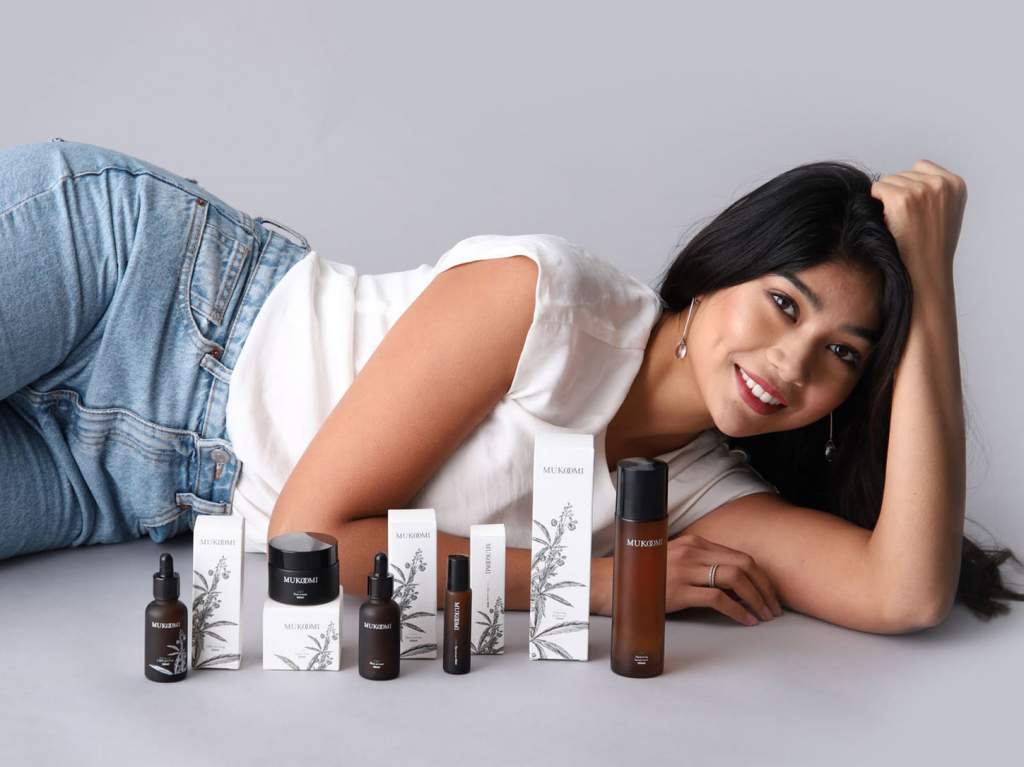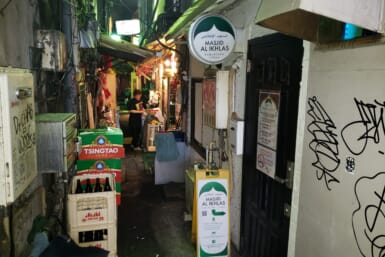Born in Tokyo to a Japanese mother and a Bengali Indian father, Priyanka Yoshikawa is probably best known as the first biracial woman to be crowned Miss World Japan (in 2016). As a child, she spent three years in America and 12 months in India before returning to Japan where she was bullied for looking different. Though the experience left her battling emotional scars, it also became a driving force that has made all the difference in her career.
Today, in addition to her beauty pageant success, the 26-year-old has found fulfillment as a model, teacher and ambassador for charitable organizations such as Smile Asia, which was set up to help treat facial deformities, and the Balipara Foundation, which promotes sustainable community development in the Eastern Himalayas. She also holds a license in elephant training.

More recently, she’s proving her entrepreneurial spirit: in 2017 she set up a digital marketing firm, ReR Co., Ltd, and last month she launched Mukoomi, a brand of CBD (Cannabidiol) oils and CBD-infused skincare products that form part of her East Hemp Company. “Starting my own business is something I’d been interested in doing since I began to model around the age of 17,” Yoshikawa tells TW. “Digital marketing was an industry I had a good knowledge of, and things went well, but it didn’t spark the same kind of passion I feel for my new brand. Having worked in the modeling industry, health and beauty items have always been important for me.”
Speaking to us prior to the launch of Mukoomi, a combination of the Japanese words mukou (beyond) and miru (to see), Yoshikawa is animated as she talks about her new company. “It’s been a goal of mine to have my own product for a long time, but I was thinking maybe to hold back for four or five years,” she says. “Discovering CDB oil, however, I couldn’t wait. I’ve been using it a lot, in a variety of forms over the past few years and experienced a range of benefits as a result. That, added to the fact that Japan’s a relatively untapped market, I knew I had to go for it.”
Growing increasingly popular in America, CBD oil has been proclaimed by some as an almost magical elixir. Like tetrahydrocannabinol (THC), it’s found in the marijuana plant Cannabis sativa and, when consumed, interacts with the endocannabinoid system that fine-tunes many of our vital physiological functions. Unlike THC, though, CBD doesn’t contain the psychoactive properties that create a mind-altering high and is therefore legal.
In January 2020, the World Anti-Doping Agency (WADA) officially removed cannabidiol from its list of banned substances meaning Olympic athletes can use it without facing consequences. As well as being approved by the World Health Organization (WHO), it’s been endorsed by many celebrities and sports stars such as golfer Bubba Watson and the 2019 Best FIFA Women’s Player of the Year Megan Rapinoe.
“In Japan, many people feel a lot of pressure from work. Having a natural alternative to help relieve anxiety could prove to be extremely beneficial”
While more research is needed on the safety and efficacy of CBD, findings thus far suggest it has fewer side effects than most prescription medications and clinical trials have shown its effectiveness in the treatment of epilepsy. Due to a lack of scientific evidence, distributors are prohibited from making unapproved claims about the substance, however advocates of the cannabis compound believe its health benefits go much further than aiding neurological disorders. According to studies and anecdotes from users, CBD is said to help with a wide range of issues such as anxiety, acute pain, inflammation, depression, acne and insomnia, while scientists are currently looking into how it could aid cancer treatment.
For Yoshikawa, it was during a trip to America that she first learned about the
potential benefits of cannabidiol.
“As a model, you’re constantly being assessed on the way you look and that can be very stressful,” says the former Miss Japan. “There have been times when I couldn’t sleep and had skin breakouts. In Japan, many people feel a lot of pressure from work. Having a natural alternative to help relieve anxiety could prove to be extremely beneficial. I believe there will be a growing demand for CBD here once there’s more awareness.”

After asking several people in Tokyo what they think about CBD oil, it became clear that the vast majority of locals have never heard of it. However, a small number of stores have started selling cannabidiol items in Tokyo and Yoshikawa says she’s impressed with the products she’s seen. But with her own brand, she wants to do something different.
“Rather than just selling CBD, we’re focusing on spreading our message and bringing together a community around Mukoomi,” she explains. “The idea is to create a company with a home-like feel to it where customers have familiarity with the products. One of my main roles is to put myself out there to answer any questions they have. We also plan to have offline events to build up relations with our consumers.”
“The first time I remember being bullied was after I returned to Japan from abroad”
Yoshikawa would like to use these events, as well as online content related to the brand, to speak about diversity and inclusion: two topics close to her heart. Being a woman of mixed race, she’s often questioned about her Japanese-ness and complimented on how well she speaks the language even though it’s her native tongue. As a student, she was picked on and often excluded by classmates.
“The first time I remember being bullied was after I returned to Japan from abroad,” recalls Yoshikawa. “We were in a music class and three kids made a sign for me to die. I couldn’t believe it but that was just the beginning. In classes, I would regularly have to sit by myself. Other kids treated me like I was a germ. If they brushed past me in the corridor, they would run their arm against the wall as if to try and avoid catching something.”

Although the situation became more tolerable as she grew older, Yoshikawa has no happy memories from her time at school. The only positive she takes from that period is the fact that the experience lit a fire in her. She became tired of attempting to fit in and stay out of trouble; pretending to be someone she wasn’t. The biracial model grew to embrace her unique identity and is now eager to encourage others to do the same.
“I think many kids have gone through something similar to what I did, and I want to tell them not to hide, but be proud of where you’ve come from,” says Yoshikawa. “It is my hope to reach out and say these words to as many people as possible and thankfully, by winning Miss World Japan, I had a great platform to do that.”
The success of Yoshikawa and Ariana Miyamoto, who in 2015 became the first mixed-race woman to be crowned Miss Universe Japan, was hailed as a “huge step forward” in regard to cultural diversity in this country. Not everyone was pleased, though, with some social media commentators complaining about the pair’s “lack of purity” and how they didn’t “look Japanese enough.”
“Last year Miss World Japan was won by a 17-year-old Canadian-Japanese woman [Marika Sera], and little has been written about that,” says Yoshikawa. “With Ariana and I, the focus was on our skin color. This is an island nation where people are still being categorized based on their race, nationality, sex and age. We need to look beyond these things and appreciate people for who they truly are. That’s the main message I’m keen to convey through Mukoomi.”
More info at mukoomi.com
Photograph by Miki Sasaki









